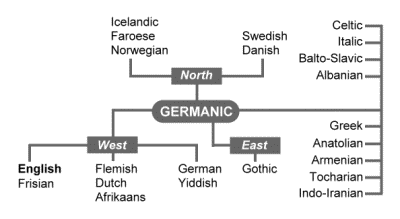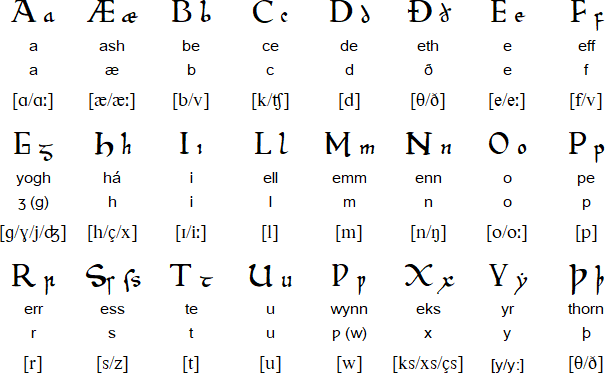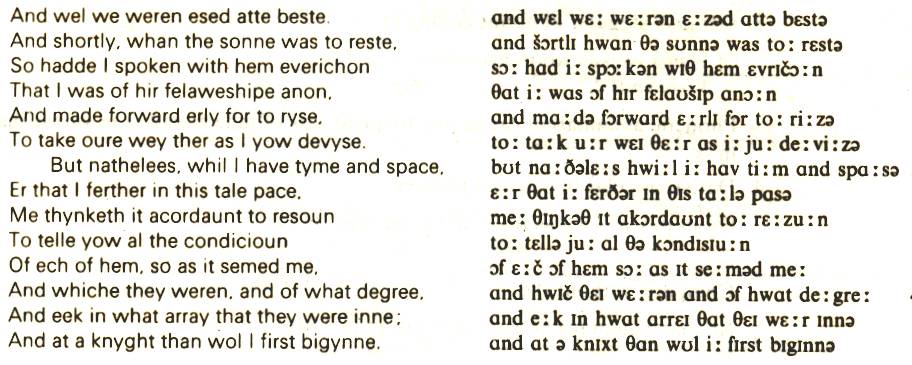An Excuse to Discuss Sexy Accents?
Ciao everyone! Welcome back to the blog. Here’s another joke for you all:
An Englishman, a Frenchman, a Spaniard, and a German are all watching an American street performer do some juggling. The juggler notices that the four gentlemen have a very poor view, so he stands on a wooden crate and calls out, “Can you all see me now?”
“Yes.”
“Oui.”
“Sí.”
“Ja.”
At first, I read this joke and didn’t get it, but after reading it out loud I thought it was funny. I rate it a 8.75/10. Phonetics man.
French, Spanish, and German all played a role in the evolution of the English language, which is the most spoken language in the world. Although I wish I was fluent in another language to blog about, I will stick to the creation of Modern English.
No no I won’t bore you with all the linguistic evidence (because I don’t think I could even comprehend it myself), but here’s the chronology of this language cocktail. Let’s see how the following languages played a role, as reported by the Oxford International English Schools:

German:
After the Jutes, Saxons and Angles invaded Great Britain after the 5th Century to acquire their land, the invaders spread their early Germanic language. This took over the old Celtic-based English spoken by the British. As Charlemagne’s empire grew, German spread, and the British vacated to modern-day Scotland and Ireland.
Old English:
Of course, with the decline of this empire and the rise of the Middle Ages, Old English was spoken among peasants. While still a blend of the Anglo-Saxon language, authors such as Cynewulf and Aldhelm, who were leading figures in the world of Anglo-Saxon literature, contributed to its evolution. As leaders in Christian poetry, devoted religious followers, especially before the Crusades, learned Old English from the 5th to 10th century.

Old English alphabet used by Anglo-Saxons
French (Latin):
The English language changed again between the 10th and 11th century, in which Norman invasions brought French elements to Old English. French, as a romance language, is derived from Latin, which was created circa the Roman Empire. So, it’s safe to say that the people of Gaul’s bastardization of Latin later created “Middle English.”
Middle English:
Up until the 14th century, Middle English was spoken, especially after the publication of Geofrey Chaucer’s “Canterbury Tales.” This strayed from the Germanic roots and embraced the French-based English.

Middle English? More like Gibberish
Modern-ish English:
Building off of Middle English, the Renaissance influenced Modern English. The cultural rebirth during this time, as well as increased worldliness, led to more infusion and variety of dialects, probably caused by increased tolerance. This is seen up until the 17th century.
Spanish (Latin):
Around the same time Middle English and Modern-ish English were created, Spanish roots were mixed in. This can be attributed to Spanish Inquisition and colonization, with cultural diffusion’s prime in the 16th century. Natives and foreign explorers furthered the entanglement of several dialects in order to communicate.
Modern English (Current):
Around the 18th century, Shakespeare and the rise of the British Empire created the standards for Modern English. With West African, Native American, Spanish and European influences, Modern English became its own melting pot that was spread across the world through imperialism and military endeavors.

While these are all versions of Modern English, several dialects have arose
Woohoo English is great, but certain accents are really what make the language. This could be the sole topic of its own for a blog post.
Now, it’s my turn to make like a tree and get out of here. Until next time my jokers!
Reference: Oxford International English Schools. “A Brief History of the English Language.” Oxford International English Schools, Oxford International English Schools, 22 Oct. 2020, https://www.oxfordinternationalenglish.com/a-brief-history-of-the-english-language/.